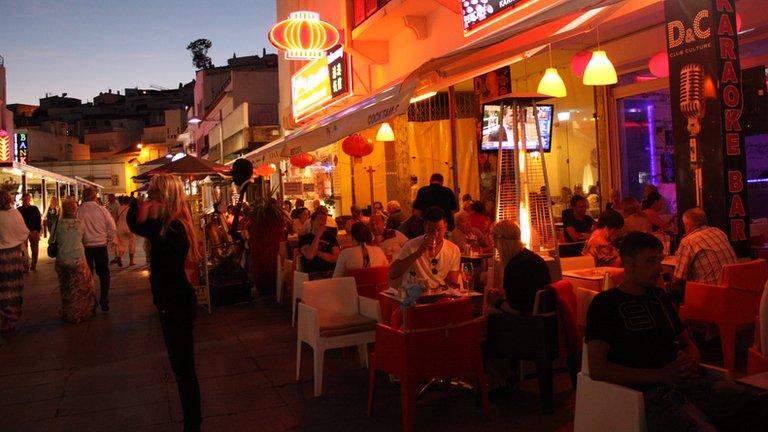The winners and losers of Portugal's golden visa scheme
- Published
Brian Tang: "The data shows that 80% of the [golden visa] applicants are Chinese"
"Do I get four Golden Visas for this?" jokes Yili Chen as estate agent Nuno Durao shows him round a 2m euro ($2.8m) apartment in the seaside town of Cascais. The 28-year-old, who prefers to be called Li, is from Shenzhen in southern China. He has been lured to Portugal by its Golden Residence Permit programme.
It gives foreign investors who spend 500,000 euros on a property here the right to live in Portugal.
They are also free to travel around all the EU countries in the Schengen area and after six years they can apply for Portuguese citizenship.
Li, who got married last year, wants to send his children to European universities.
He is also concerned about what the financial future may hold for China, so he is looking to invest in Europe.
"You cannot put all your eggs in the same bucket. So we try to put something in Europe and this is a very good opportunity. We can earn some money and also get the visa," says Li.
High demand
Since the residence scheme began in 2012, the Portuguese government says it has issued 734 so-called "Golden Visas" and that's generated more than 440m euros.
Not all of that has come from property sales though, because foreign investors can also get a Golden Visa by investing a million euros in capital or creating 10 jobs in Portugal.

Brian Tang acts as a go-between for Chinese nationals and Portuguese estate agents
The vast majority of the people signing up - 578 of them - have come from China.
Brian Tang, from Hong Kong, got a Golden Visa last year.
He says demand is so high in China, that he's opened a branch of his immigration agency CBIEC, in Lisbon, to put people like Li in touch with Portuguese estate agents.
"There's a huge appetite from China coming over to Portugal. Eighty per cent of the applicants are Chinese," says Brian Tang.
He says part of the appeal is the flexibility. Foreigners only have to be in Portugal for seven days in the first year of residency.
But the growth in schemes like this across Europe is an issue of concern for some in Portugal who think it is effectively selling access to the EU.
I meet Socialist MEP Ana Gomes for coffee in central Lisbon. As we watch the tram trundle along the cobbled street past an estate agent office emblazoned with the words Golden Visa, she tells me it is bad for Europe.
"I think this is indeed a race to the bottom, and it's actually something very anti-EU," says Mrs Gomes.
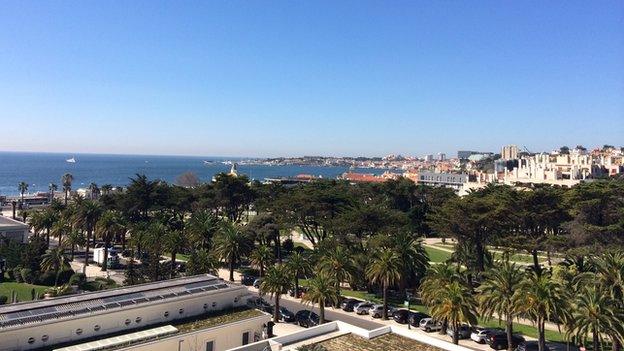
Estate agent Nuno Durao says the scheme has saved the property industry in the seaside town of Cascais
"Each country is trying to out-do the other in terms of better conditions to attract all this foreign money."
Lower price tags
Foreign investor residence schemes have long existed in the UK and other parts of the world.
But Europe's new wave has lower price tags. In Portugal and Spain investors have a minimum spend of 500,000 euros on a property to get a permit, in Cyprus it is 300,000 euros, and in Greece it is 250,000 euros.
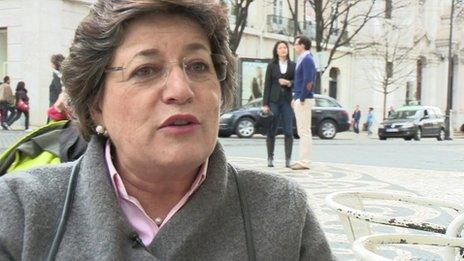
Ana Gomes warns the scheme will bring added risks, such as corruption, into the EU
Ana Gomes says cash-strapped European countries are so focussed on reviving their property industries that they are not looking at potential risks.
"There might be all sorts of corrupt and even criminal organisations behind those who are benefiting from these schemes…and it might be another very dangerous avenue to import additional corruption and criminality into the EU," she adds.
But the Portuguese communities minister, Jose Cesario, tells me there is nothing to worry about: "We don't sell visas or passports. They are very scrutinised. We investigate everything about them. We are very rigorous with them."
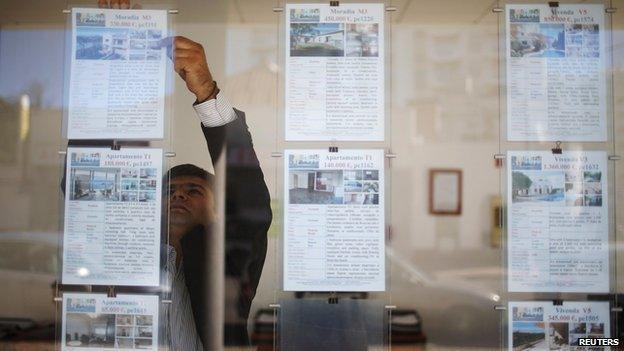
The Portuguese government say they have generated more than 440m euros from the golden visa scheme
Back in Cascais, as we watch the boats sail by, Nuno Durao from the property firm Fine & Country, tells me Golden Visas have saved the real estate industry here, and everyone benefits.
"The people that are coming are investing in Portugal. The Chinese love European brands. They buy vineyards, pig farms. All this helps Portugal a lot."
But a locksmith working on the docks disagrees. Joaquim Mendes Dionisio, who is in his 50s, has seen his pay cut since Portugal's 78bn-euro bailout three years ago.
He thinks the government should be coming up with schemes to help hard-hit workers.
"Those rich people come here because they want the sun and the sand... It doesn't benefit the workers at all. Because the money they bring in, it's just for them. It's not for workers like me."
While it is drawing in foreign cash though, the Golden Visa is here to stay.
- Published9 December 2022
- Published15 September 2013
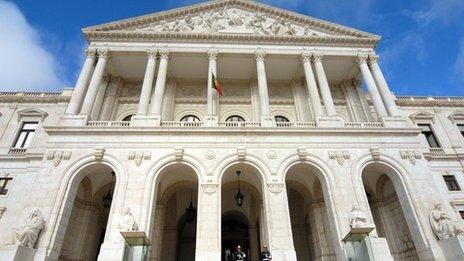
- Published20 August 2013
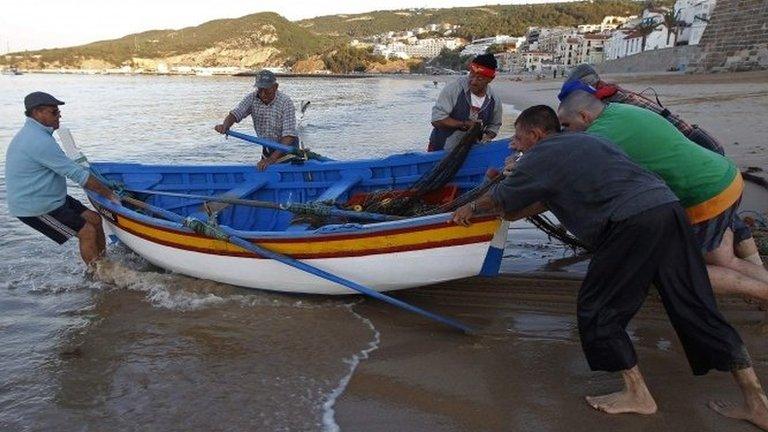
- Published28 June 2013
